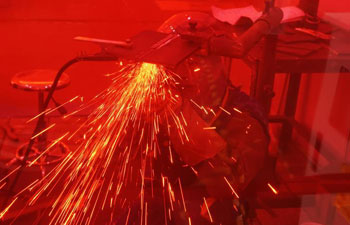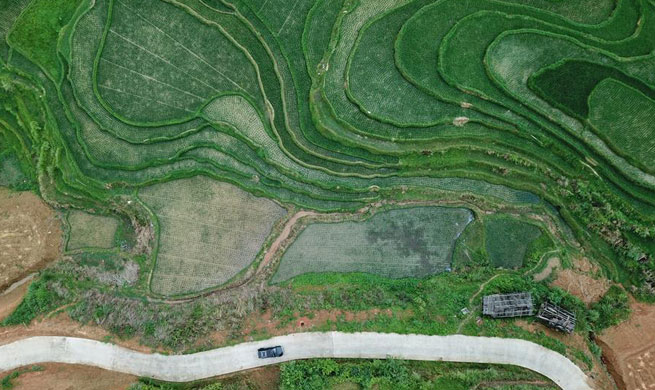WASHINGTON, June 25 (Xinhua) -- New research has uncovered the genetic details of microbes found in the liquid-filled cracks created by fracking, which could imply the potential for life on Mars.
The study, published on Monday in the journal Proceedings of the National Academy of Sciences, found that not only do a wide array of bacteria and viruses thrived in these crevices created by hydraulic fracturing, they also had the power to produce methane.
That means it is possible that the tiny life forms could create more energy than the fracking companies are going after in the first place, according to scientists from the Ohio State University.
On the other hand, the microbes found in samples from wells in Ohio, West Virginia and Pennsylvania in the United States could also point to potential problems from an industry standpoint.
They could prove corrosive, toxic or otherwise problematic, said the study's lead author, Kelly Wrighton, an assistant professor of microbiology at Ohio State.
Hydraulic fracturing involves forcing open fissures in rocks deep in Earth by introducing high-pressure liquid and other components, including sand and chemicals, to extract oil or gas.
Chemicals, stabilizers and water injected into the wells might be contributing to the microbial diversity within them, the researchers said.
This was the first study to look at microbes from multiple sites in a controlled environment, said the study's co-author Michael Wilkins, an assistant professor of earth sciences at Ohio State.
"These wells are so deep and hard to sample. Access to the liquid in the wells offered us a unique opportunity to understand how these microbes make a living in these briny, high-pressure, high-temperature conditions," Wilkins said.
"Finding life in these rocky, salty, hard-to-survive conditions would not be dissimilar to finding life on another planet," said Wrighton. "If we want to think about what life would be like if it could exist on Mars, this is probably a pretty good place to start."
The researchers took 40 samples from five fracking wells into the lab, manipulating the environment to "draw out" microbes that wouldn't have been identified in a basic field experiment and conducting genomic analyses.
The researchers added a compound called glycine betaine to the samples and tracked gas release over time, confirming that, when prompted, the microbes produced methane.
"We found here that multiple wells have similar microorganisms, which are capable of producing methane. In theory, that could mean that stimulating the microbial community in some way could increase energy yields," said the study's co-author Mikayla Borton, an environmental science graduate student in Wrighton's lab.
Also, the microbes found in the fracking mines have parallels with microbes found in other protein-rich ecosystems, including the human gut and soil, according to Borton.
"What we learn about these fracking microbes could have the potential to help answer questions about human health, including how plaque forms in our arteries when we have cardiovascular disease," Borton said.

















